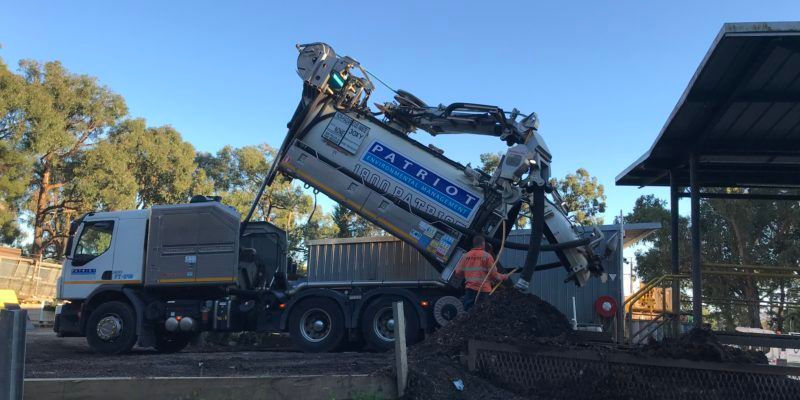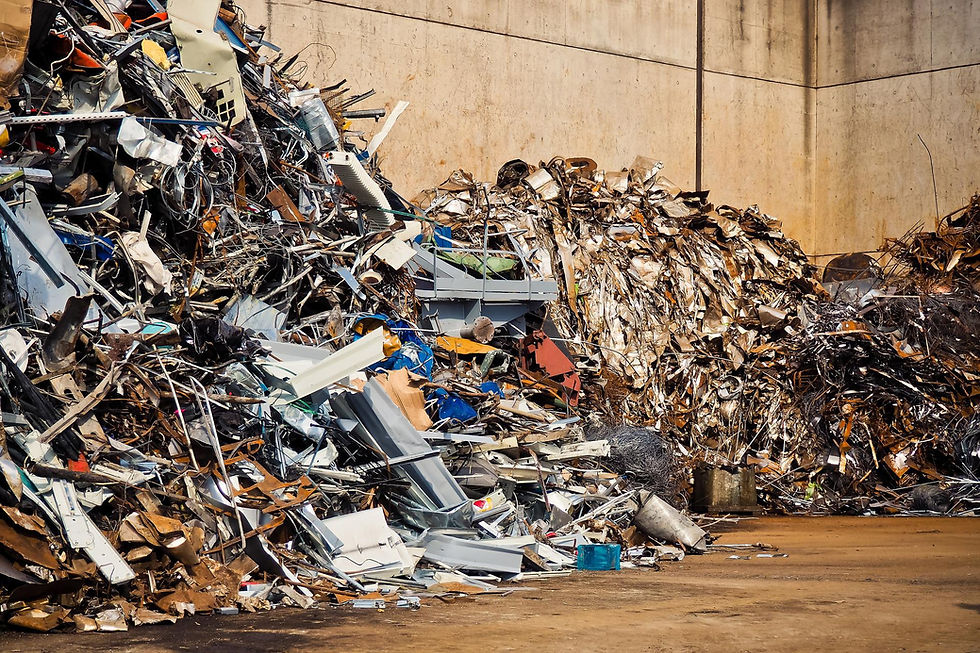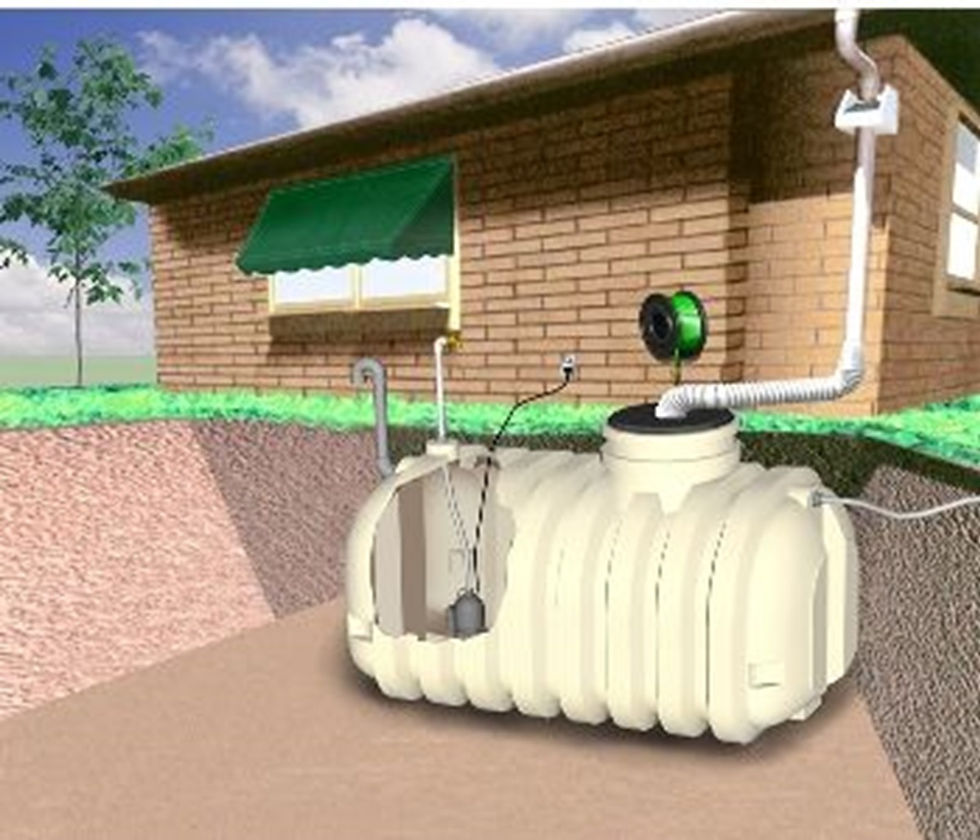Complete Guide to Waste Management Solutions
- Anna Wrench
- 17 hours ago
- 7 min read
Have you ever thought of what's going on with your fool after bin Lorry Drive? How much should you pay for waste collection? Or maybe you are surprised at which garbage you need to use for the difficult item you are trying to settle? You are not alone in asking these questions.
Waste management may not be the most glamorous topic, but there is something that affects each of us in Melbourne. From the morning coffee cup to construction residues, no matter what we throw, it should go somewhere. And with increasing environmental considerations and increasing costs, it has never been more important to understand how waste management works.
What Are the Different Types of Waste Management Services?
Residential Waste Collection
When it comes to household waste, residents of Melbourne have access to a comprehensive collection system that goes beyond the weekly bin. Standard housing services usually include your regular household base, recycling box and green waste for garden cuts and food residues.
Many advice and private suppliers offer additional services such as hard toll collection, where you can settle old furniture, mattresses and equipment. There is also a collection on request for the times you make a big clear, and your usual rooms will not bite it. Some areas also have special collection days for electronic waste and dangerous materials such as paint and battery.
Commercial Waste Solutions
Business waste management is a different beast altogether. Unlike housing services, commercial solutions should correspond to specific industry requirements and versions. The restaurant requires cleaning fat trap and disposal of organic waste, while the offices mainly deal with paper recovery and normal waste.
Most commercial suppliers offer a variety of garbage sizes from the 120-liter wheel room, which are right for large-scale ship rooms for large awards. They will work with you to determine the right collection rate - daily for Travel Café, perhaps weekly for small offices. Many safe documents also offer special services such as destruction, waste management of medical waste and handling of liquid waste.
Industrial Waste Management
Industrial waste management works completely in different scales and complexity levels. We are talking about products of under products, chemical waste, production materials and sometimes dangerous substances that require special handling and disposal methods. This is not your average toll collection. It is a highly regulated area with strict requirements for compliance.
Industrial customers usually work with special suppliers who understand the unique challenges in their territory. These companies offer services such as removal of liquid waste, disposal of contaminated soil and industrial cleaning.
Construction and Demolition Waste Services
Construction sites produce huge amounts of waste, from concrete and wood to packaging materials and asbestos, such as asbestos. Managing this waste effectively is not only important for environmental reasons but is also important for keeping projects within the plan and within the budget.
Ships Bin -car construction is the most common solution for waste, with a size from 2 cubic meters to 30 cubic meters for small renewal. But modern construction waste management goes well beyond just providing a big bin.

How to Choose the Right Waste Management Company
Essential Questions to Ask Potential Providers
Finding the right waste management partner is like dating that you need to ask the right questions to avoid disappointment later. Start with the basics: What services do they offer? What sizes of the room are available? How flexible are your collection programs? But don't stop there.
Dig deeper into their environmental credentials. Where does your waste go? What percentage is recycled versus landfilled? Do they provide waste audits or reduction advice? The best providers will have clear answers and might even offer to show you, their facilities.
Certifications and Compliance Requirements
In the waste management industry, certificates are not just fancy pieces of paper, they assure you that a company runs legally and morally. At least any waste company must have EPA (environmental protection) license and appropriate insurance. Ask to see these documents; Legislative companies would like to give them.
The ISO certificate, especially ISO 14001 for environmental management, indicates that a company assumes environmental responsibilities seriously. Some companies also have specific certificates to handle hazardous waste, medical waste or destruction of confidential documents.
Reading and Understanding Service Agreements
Service agreements in the waste industry can be filled with jargon and hidden segments. Remove time to read nice prints, especially the section on price increases, pollution fees and service changes. Some contracts grow with minimal notice of unlimited value, while others lock prices for the contract period.
Pay special attention to pollution segments. What happens if the wrong items in your room end? Some companies require heavy pollution fees, while others are more educational in their approach. Understanding these conditions helps you avoid unexpected claims and choose a supplier alliance with your needs.
Commercial Waste Management Solutions for Businesses
Tailored Solutions for Different Industries
Each industry has unique waste management challenges, and cake cutter solutions rarely work. Hospitality companies handle large amounts of food waste and require frequent collections, while production facilities can produce specific waste streams and require special handling. Understanding these differences is important for effective commercial waste management.
The functions of the health care system require safe disposal for medical waste and confidential documents, as well as careful handling of drug waste. Construction companies require flexible solutions that can be up or down as the progress of projects. Retail companies often require compactors or Baylor to effectively manage packaging waste. The best suppliers of waste management understand these industry -specific needs and provide customized solutions.
Implementing Workplace Recycling Programmes
Recycling in the workplace requires that only a few coloured rooms should be excluded. Successful programs begin by understanding your waste streams through a correct revision. What kind of waste produces your business? Where does it come from? This information helps design a system that works for your specific situation.
Measuring and celebrating success leads to speed. Share the degree of recycling with employees, set reform goals and identify performance. Some companies make it competitive among departments or link the recycling of performance to social responsibility.
Cost-Saving Strategies for Businesses
Smart waste management can significantly reduce commercial operating costs. Begin with a waste audit to identify the largest spending areas. Often businesses are paid for large rooms or more collections. By giving the right shape, your service can provide immediate savings without compromising on cleanliness or convenience.
Separating waste streams often reduces costs. The recycling collection is generally cheaper than normal waste management, so improvement in recycling speeds directly affects your lower line. Some materials, such as cardboard and some metals, can also generate revenue.
Meeting Corporate Social Responsibility Goals
Waste management plays an important role in social responsibility strategies. Stakeholders have quickly expected a business that they will show environmental management and is one of the most visible methods to show a decline in waste. Proper waste management is not yet about compliance; this brand is about the reputation and the operation of a social license.
This requires working closely with waste suppliers to find an alternative for each waste current. Some companies have been partnered with social enterprises working to add a social dimension to the disadvantaged workers to sort out the waste or create products from recycled materials, to add a social dimension to their environmental efforts.

Innovative Waste Management Technologies and Future Trends
Smart Bins and IoT Solutions
Internet of Things (IoT) brings a revolution in waste management in ways that seemed like a science fiction a few years ago. Smart rooms equipped with sensors can monitor the levels of full rooms and send notifications if the collection is required. This means that there is no more crowded room or unnecessary collection of people. These are skills in their best.
These intelligent systems go beyond just monitoring capacity. Some smart boxes compact waste automatically increases the effective capacity by five times. Others use sensors to identify pollution in streams recycling, which helps to improve the quality of recycling.
Advanced Sorting and Processing Technologies
Recycling features are becoming increasingly sophisticated by using artificial intelligence and robotics to sort more accurately than ever. Optical sorting systems can identify a variety of plastic by their chemical signature, while AI-operated robots choose objects from conveyor belts with supernatural speed and accuracy.
Chemical recycling technologies open new opportunities for plastic that cannot be recycled earlier. These processes break the plastic of their molecular components, making them again in new products without loss of quality.
The Future of Waste Management in Melbourne
Melbourne's waste management future looks radically different from today. Circular economy principles will drive design changes, with products created for disassembly and recycling from the start. Packaging will be revolutionised, with reusable systems and truly compostable alternatives replacing single-use plastics.
Community attitudes are shifting too. The sharing economy reduces waste by maximising product utilisation. Repair cafes and equipment libraries grow in popularity. Young consumers quickly choose brands based on environmental information. These social changes combined with technological progress and side rivers create speed against the durable waste management system.
Practical Tips for Reducing Waste and Saving Money
Simple Changes That Make a Big Difference
Small tasks add when it comes to wasted reduction. Starting with shopping stoves, bringing re -fitting bags is just the beginning. Re -prepared production bags, containers for daily goods, and consider possible purchases with bulk in bulk.
In the kitchen, food plans prevent food waste and save money. Australians throw away about 20% of the food they buy that's literally throwing money in the bin.
Composting and Organic Waste Solutions
Composting makes the waste a garden gold and reduces your garbage requirements. Even without a garden, small compost systems like Bokashi boxes or insect fields work brilliant in apartments. These systems handle all food debris, including meat and dairy, which cannot treat traditional fertilizers.
For people with gardens, livestock manure becomes even more valuable. A proper livestock fertilizer system transforms kitchen scrapes, garden waste and even paper products to the effect of nutrients rich on nutrients. This eliminates the need to buy commercial fertilizers and soils.
Bulk Waste and Hard Rubbish Collection Tips
The hard fool collection seems right, but the strategic plan maximizes the value. Before excluding the objects, consider whether they can be sold, donated or given away. Online marketplaces and community groups are good to find new houses for usable goods. One person's waste is the treasure of another.
Timing matters with hard rubbish. Coordinate with neighbours to share skip bins for private collections, splitting costs while decluttering together. For council collections, prepare items properly separate metals, e-waste, and other categories as required.
Better Waste Management
We have covered a lot of land in this guide, from understanding various waste services to the discovery of state -of -the -art techniques that shape our waste -free future. Key Takeaway? Effective waste management is not just about putting the right things in the right garbage, it is about understanding the whole system and making informed alternatives that benefit both the pocket and the planet.
The future of waste management in Melbourne is bright, new technologies and positive changes with increasing environmental awareness. But technology alone won't solve our waste challenges we need everyone on board.




Комментарии